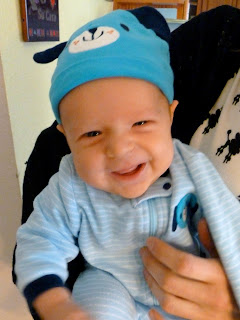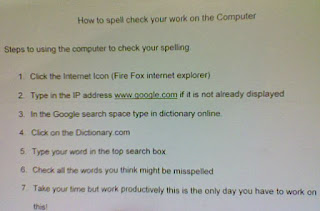To begin, an analogy:
When you have a toddler, you tell him or her to stay away
from the street because it’s dangerous. And it is, for someone who doesn’t have
any knowledge of the things that could happen. However, as the child grows, you
help him or her learn how to cross the street safely. No longer is it something
to avoid, but something that is usable and helpful, as long as the child knows
what to do and what to look for.
The same thing applies to our students and the internet. As
they grow older, they must be allowed to access the real, unfiltered internet;
so that they know what to do when they arrive at online scenarios that leave
them with choices to make. Too
often, when we as teachers aren’t sure ourselves how to deal with online
citizenship, we gloss these situations over by relying on web filters to “keep
our students safe.”
In reality, this only serves to make them unaware of what
to do when they encounter the real internet (which they certainly will). In
essence, to go back to our previous analogy, it’s as if we were to never teach
a child how to cross the street, but to continue to tell them to stay away from
the street because its dangerous, even as they become young adults.
Our job as educators is to give our students the skills they
need to navigate the internet with eyes wide open, using caution as well as
research skills. In my technology courses, we use very little filtering. We
spend a significant portion of time talking about how to effectively use
Google. If we only give students a list of pre-approved websites to do research
from, they’ll never learn which types of sites give them reliable, unbiased
information, and what websites look like that they should NOT trust.
Even more, it’s important that we don’t shield them from
inappropriate comments online. We need to point them out, identify the issues
with behaving that way, and then discuss together how you could participate in
the conversation in a civil, respectful way, even when you disagree. (A key
distinction!)
These are crucial skills that will impact how effectively
our students use the internet, which will go on to be one of the biggest
technological influences in their lives for years to come. The majority of us
never had any formal education in these skills, and look at where it’s gotten
us. To an internet showcasing useless information, rude comments, and lots of
time wasters hiding the actual gems of knowledge.
If we, as teachers, don’t teach our students these skills,
who will?
[Photo: Student photo from 8th grade Photojournalism class]







